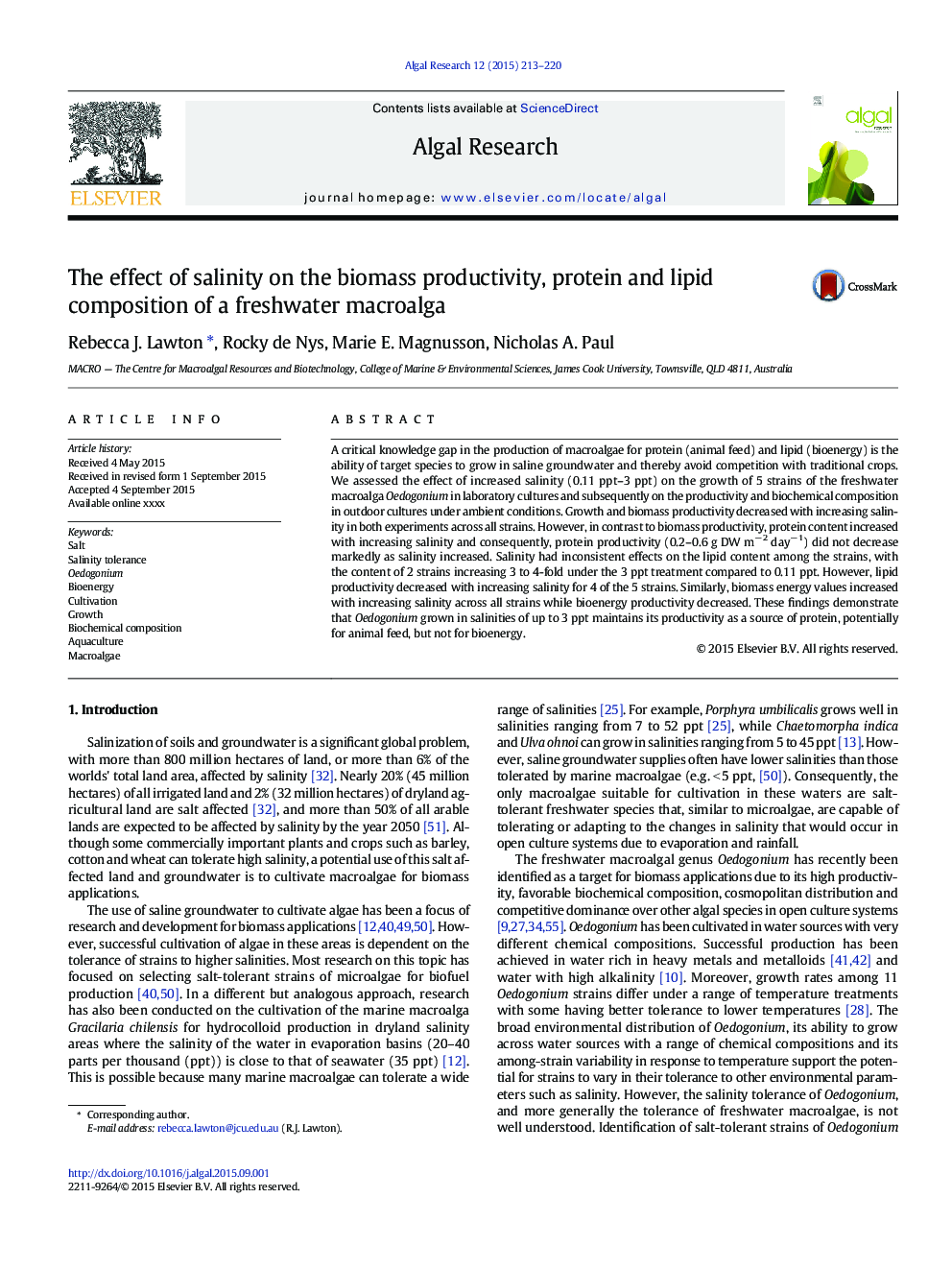| Article ID | Journal | Published Year | Pages | File Type |
|---|---|---|---|---|
| 8087742 | Algal Research | 2015 | 8 Pages |
Abstract
A critical knowledge gap in the production of macroalgae for protein (animal feed) and lipid (bioenergy) is the ability of target species to grow in saline groundwater and thereby avoid competition with traditional crops. We assessed the effect of increased salinity (0.11 ppt-3 ppt) on the growth of 5 strains of the freshwater macroalga Oedogonium in laboratory cultures and subsequently on the productivity and biochemical composition in outdoor cultures under ambient conditions. Growth and biomass productivity decreased with increasing salinity in both experiments across all strains. However, in contrast to biomass productivity, protein content increased with increasing salinity and consequently, protein productivity (0.2-0.6 g DW mâ 2 dayâ 1) did not decrease markedly as salinity increased. Salinity had inconsistent effects on the lipid content among the strains, with the content of 2 strains increasing 3 to 4-fold under the 3 ppt treatment compared to 0.11 ppt. However, lipid productivity decreased with increasing salinity for 4 of the 5 strains. Similarly, biomass energy values increased with increasing salinity across all strains while bioenergy productivity decreased. These findings demonstrate that Oedogonium grown in salinities of up to 3 ppt maintains its productivity as a source of protein, potentially for animal feed, but not for bioenergy.
Keywords
Related Topics
Physical Sciences and Engineering
Energy
Renewable Energy, Sustainability and the Environment
Authors
Rebecca J. Lawton, Rocky de Nys, Marie E. Magnusson, Nicholas A. Paul,
